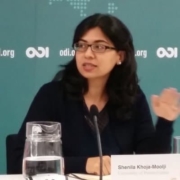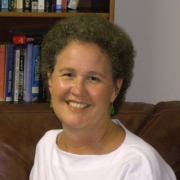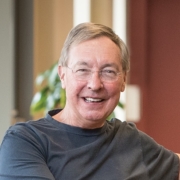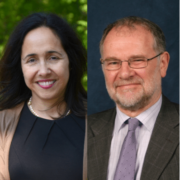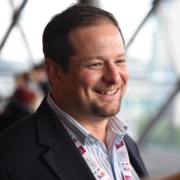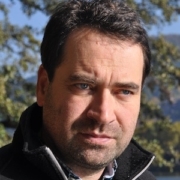Dennis Shirley
Beyond well-being
Today I wax philosophically with Dennis Shirley about his new co-edited special issue of the ECNU Review of Educationentitled Beyond well-being: Educating for Wholeness and Purpose. In our conversation we discuss the future of education and the dialectic between well-being and learning.
Dennis Shirley is Duganne Faculty Fellow and Professor of Education at the Lynch School of Education and Human Development at Boston College. He’s co-editor with Stanton Wortham, and Deoksoon Kim of the latest issue of the ECNU Review of Education.
Citation: Shirley, Dennis, interview with Will Brehm, FreshEd, 224, podcast audio, December 7, 2020. https://freshedpodcast.com/shirley/
Will Brehm 1:02
Dennis Shirley, welcome to FreshEd.
Dennis Shirley 1:04
Hi, Will. How are you?
Will Brehm 1:05
So, congratulations on co-editing this latest special issue. It is really wonderful. I want to start today by thinking about COVID-19 and why during COVID-19, there is such a focus on the well-being of children and schools. I mean, you know, to me it seems a bit strange to think that schools are only now thinking about the well-being of children. Isn’t that something they always should have been focused on?
Dennis Shirley 1:27
Right. So, that’s a great philosophical question. And I think that the sad answer to your question is that schools have not always been focused on well-being. In fact, that they have neglected it. I think that we can say that schools, due to policies that were imposed upon them, have been compelled to neglect well-being. And this would really be true for the time period that started with national education reform in the UK and the Nation at Risk Report in the US. So, going back to the 1980s, when standardized testing was really introduced as a way to rank and divide schools and get them to compete with each other. And what that really meant was that educators had to focus on a very narrow range of curricular subjects. And typically, what got sacrificed were disciplines like physical education, performing, visual arts, science, even in the elementary grades while children got marched through reading, writing, and mathematics. So, this neglect of well-being is something that has been pushed through policy; I would suggest and is very poignant. This is not always been the case that schools neglected well-being so systematically.
Will Brehm 2:41
Right. So, it is a relatively recent phenomenon, and perhaps COVID-19 is sort of making – hopefully- policymakers rethink that now that schools are sort of a site of welfare for many children.
Dennis Shirley 2:53
Right. So, one of the things that the pandemic has done, it is brought to public consciousness how many children depend upon their schools for food, for shelter, for some place to be when their guardians are working. They’ve also revealed that schools are sites of ill-being for some children. Children who have been bullied, children whose classmates have made it impossible for them to listen to the teacher and get on with their learning. So, I think that what the pandemic has done is it has forced everything into a kind of brilliant “chiaroscuro,” you know, darkness and light about what is going on with our societies and our schools and well-being is one part of that.
Will Brehm 3:42
Hmm. So, let’s step back and actually think about what is well-being, like how can we even begin to conceptualize what that would look like?
Dennis Shirley 3:51
Excellent. So, the term well-being, which my colleague and friend Andy Hargreaves and I have tried to do an archaeology on, it really seems to have broken into public awareness with the creation of the World Health Organization right after the Second World War. And in its original references to well-being, the World Health Organization said that well-being was not simply the absence of ill-being or negative effect or failure to thrive; it was a positive state of flourishing, of engagement with the world, of human development. So, that’s kind of the “Rosetta Stone” that we would go back to identify that. And then, the World Health Organization also called on new groups of professionals. So, we would say guidance counselors in the US. In the UK, you might say pastoral care workers. Other countries might refer to it as social workers, mental health counselors. But a whole group of people whose training was in psychology was really this training, and this recruitment of people for these positions was accelerated in the post-World War II years. And so, this was new for schools. Schools had not always had people with those roles. Those roles were assigned to teachers as part of their contribution to students learning.
Will Brehm 5:27
So, in a way, the idea then is that this positive state that we can call well-being could be taught. I mean, that was sort of the assumption?
Dennis Shirley 5:37
Could be taught, or could be facilitated, could be enabled, self-destructive behaviors could be corrected, and then you kind of get the whole explosion. If you kind of want to see it in critical terms, you kind of say, maybe the therapeutic state, or the therapeutic industry. If you wanted to see it in more positive terms, you would say, this is fabulous. Being a human being is complicated. We now have millions of trained professionals who can help troubled young people to develop.
Will Brehm 6:09
Right. And so, I mean, I guess well-being there can be so many different iterations or terms to even begin to talk about it. Would well-being, in terms of education, sort of include the focus on happiness that I know like the OECD is now pushing. Or even ideas like mindfulness, which you see sort of emerging in a lot of school system.
Dennis Shirley 6:29
There’s many different shades of well-being discourse if we could put it that way. You know, and they would go all the way from what we had in California, and in the US, it continued for a long time; it is still visible in some places. Kind of a self-esteem movement, where it is all about boosting kids’ confidence and positive self-regard and self-care, all that kind of stuff, that’s definitely one strand. Another strand would be mindfulness. I did a book called The Mindful Teacher with a fourth-grade teacher colleague here in Boston, Elizabeth MacDonald. And there, it was really about trying to help educators to slow down, quiet their bodies, calm their minds, and pay better attention to what they were observing in front of them. So, if you have a whole system that is telling you to get your test scores up, but kids are really suffering from poverty, and inequality, and racism, then you better pay attention to those things as a teacher. So, that book was quite popular, you know, for teachers because it said to them, it is good to stop and pay attention. It is good for you to take care of yourself. We don’t need more people to leave the profession. It kind of gave them permission to do that. So, you have self-esteem, you have mindfulness. And then I would say there is kind of social definitions of well-being, which Andy and I are trying to advocate for. And those would be things that kind of would be is there a strong welfare state to help children in poverty? Are there policies so that even if you are coming from a very poor working-class neighborhood, you can get the assistance you need to flourish? Are there parks? Are there libraries? Are there good public services? Is environmental racism visible in your community? So, paying attention to the social dimensions. Now, because we are both in the US, we tend to get irritated with the psychological solutions because some of the problems that we have are not going to be resolved even with the best positive psychology interventions in the world. If, at the end of the day, you are sending kids right back out into deeply troubled communities, not through any fault of their own, but through policies, then we are not going to really tackle the problem. So, those would just be, you know, kind of US-based self-esteem movement, mindfulness would be another dimension of well-being, and then social dimensions of well-being, and then you know there is a whole cornucopia out there right now.
Will Brehm 9:00
And I would imagine different contexts might understand what the idea of well-being is very differently, right? I mean, if you go to China or Japan, or, you know, South Africa, I am sure it’s very different compared to what might be happening in the US or the UK.
Dennis Shirley 9:17
Right. And then I think I saw that recently, on your program, you had done an interview with some indigenous educators and activists, right? So, a lot of the research that Andy and I have done recently has been in Canada or in the Pacific Northwest of the US, where there is large numbers of indigenous youth and indigenous communities. And you know, what could be more culturally alienating than to ask kids from these ancient peoples to sit down and focus their attention on filling in bubbles. And you know, I mean, honestly, that the reason it is really important to have so many diverse cultures is because cultures can kind of go off track. So, my own kids in their elementary school here, they had a principal who didn’t want the kids to throw snowballs at each other, have snowball fights, play tag, do rough-and-tumble sports, you know, climb trees, all of these kinds of things which children need to do. They need to enjoy those activities and have fun and fall down and scrape your knee, and you know, break your arm when you fall out of a tree. That is what childhood is for. Let them play and let them play vigorously. And for heaven’s sake, don’t be so involved in trying to protect them from every little mistake. And in my knowledge of indigenous cultures -I have some- that kind of sense of physical engagement with the natural environment is prioritized. It is very important. And so, schools have to change. I think that that is something that I would say about the well-being work is; I hope that when the pandemic is done, we are not just going to say, okay, great, let’s go back. Let’s give those kids those tests again. Let’s get them all on technology 24/7; heaven forbid that they would want to go outside and, you know, play a game of basketball or hockey or something you know. So, we have got to kind of correct some of these ways in which, I would say, mainstream middle-class cultures really lost the plot.
Will Brehm 11:20
Hmm. So, I mean, that brings up an interesting point about, you know, how do schools need to change. Or maybe even put it a different way is how are schools getting in the way of promoting and advancing well-being?
Dennis Shirley 11:32
The obvious archenemy here would be standardized testing, and especially its nefarious uses in the US, in the UK, to shut down schools, often, with very little assistance provided. Get teachers telling kids that the kids have to do well on the test; otherwise, they’ll lose their jobs. All these kind of negative side effects of standardized testing. So, those have got to be diminished. I would kind of love to see all these systems just removed. You know, these things didn’t exist, Will, in my education at all. And, you know, we had opportunities often to do book projects, work in small groups, bustling activities where you’d make things. Art class was important. They used to teach dance in schools, you know, they used to do all kinds of things. And so, we have to restore that. And so, Pasi is a good friend. So, I am up with him to a certain point. The point at which I would probably stop would be that I do want our young people to be critical. I want them to be socially critical. I want them to see themselves as people who can make the world a better place. And a lot of activists are not particularly happy people. If I could say that. But thank goodness.
Will Brehm 12:51
I mean. It is strange that there is this sort of emphasis on being happy. It is sort of that is the one of the goals in a way. It is so long as people are happy that they have a sense of well-being, you know. And maybe that is not the case. You can have a sense of well-being and feel all these different emotions.
Dennis Shirley 13:06
Right. So, I think that the good well-being literature -and there is a fair amount of this- is that well-being is kind of an optimal experience. It is perhaps not a permanent state. And so, if you can experience a sense of flow, Holly wrote about a state of flow where you kind of are so immersed in what you’re doing that you have forgotten to eat, you know, and you’re just experiencing this oneness with whatever you are doing. Or Abraham Maslow called that a “peak experience.” Those things are great. Those things can nourish us for years to come. And I think that that research shows that if you are a lab scientist, or if you are an artist or a musician, you might only get that state of flow, you know, a couple of times a year. In some fields, it may be only a few times during your life, you know. But you are so immersed in what you are doing. You are so fascinated by it that it really doesn’t matter because you found your calling. I will tell you a little story. The other night, I was sitting out with a friend who teaches the bass at the Berklee School of Music. His name is Bruno Råberg, and he teaches jazz composition. And I said, so you know, Bruno, do you enjoy creativity? And he said, yeah, I do enjoy creativity. And his wife was kind of like, well, you don’t always really. Sometimes you are kind of frustrated. He said, well, I have learned that if I’m frustrated by something, I just go and leave it for a while and come back later. And then his wife, you know, Melissa Howe, she said, well, yeah, that is really good, but you can’t do that in class. If somebody is in a class, right? Well, then, Will, you have to ask yourself -at the Berklee School of Music, you want to prepare young people to be able to support themselves, ideally making music. So, something in the organization of school is getting in the way of what a successful jazz musician does.
Will Brehm 15:10
It reminds me a little bit of -there is a book by Camus called the myth of Sisyphus, you know, the story about someone who was condemned to push a rock up a mountain, and then the rock would fall back down, and then he would have to push the rock back up. And he had to do it for eternity. And Camus said, you have to conclude that Sisyphus was happy, you know. And so, in a way that is very similar to what I think you are sort of saying is that it is in that process, and in that struggle, that you’re going to experience a very wide range of emotions. That is part of it. And that is well being in many ways.
Dennis Shirley 15:52
That’s lovely, Will. And if I could just build on that observation of Camus. There is a Zen Buddhist teacher here in Cambridge, Massachusetts, Larry Rosenberg, who wrote a beautiful book called Breath by Breath. And I think it is in that book; if not, it is another one or a Dharma talk, but he says, Sisyphus is only unhappy if he is thinking, I hate this terrible boulder. Why do I have to do this? I wish I could get a sandwich, sit down, have a beer, right? But if he is able to become one with the boulder and understand to a certain extent, it is a human condition; we are mortal creatures. So, you know, to a certain extent, we will be returning to the elements from which we emerged, then that is probably okay, right? And I think that the reason that these kinds of conversations are so important is there is a part of the well-being discourse that doesn’t really accept the idea of struggle, of difficulty, of will-power, of resilience. It is kind of; it cheapens the process of what it really is to be human. And what it really is to struggle for a worthy goal.
Will Brehm 17:10
And it is as if you struggle on a test, you are seen as failing. It is this sort of your intelligence is defined as that that score that you struggled to get. And so, it becomes this individualized failure rather than sort of seen as part of the educational process. Part of being human, as you said.
Dennis Shirley 17:32
Yeah, yeah. So, I think that this is something -if teachers are listening to this, I heard this once many years ago at a conference, and it left a deep imprint upon me. A researcher said, you know, it is not that kids hate math, or that they hate history, or that they hate science; they hate the feeling of feeling stupid. And there is some shame that goes along with how we design schools. You know, some sense of humiliation. Could we create school atmospheres, classroom climates, networks of peer support, where there is lots of encouragement, just lots and lots of encouragement. And, you know, teachers would say, I am really glad that you tried this much harder assignment. I like to see you really working hard even if you can’t succeed with this challenge by the end of class, stick with it for a while. And that’s right, you’re ready for this level. So, I think that those are really important considerations. And if I could here, I’d like to balance things. For me, there is two goals of school. One is to kind of help people on their path towards well-being. But then learning is a goal also. And it is a kind of a separate goal. And so, if you can kind of see this as a dialectic between learning and the path towards well-being, then I think that we are moving in a good direction.
Will Brehm 18:57
So, you are basically saying it is not only well-being that we need to be concerned about. There is another side of this dialectic, and it is sort of the struggle between the two that we can create this synthesis that we might call education.
Dennis Shirley 19:10
Yeah. So, we should always think dialectically. There should always be a negative dialectic, right? So, it doesn’t matter what social movement, what idea, whatever is we think it is the most important. We need the negative part of the dialectic because every human being, every theory has some limitations, right? So, one of the things, I think, for the future of education is to -I really get into it with students because like in a school of education, there is a kind of a positive, upbeat, happy, let’s do this, let’s encourage, etc. But then, we do want some malcontents, you know. John Lewis called it “good trouble.” I did a lot of work with community organizers earlier, and you know, like, we joke, you know, if you’re not getting into trouble, you’re not doing your job. So, you know, you have to be thoughtful about how you do that. You don’t want to just make a mess of things. But there are injustices that have to be rectified. There is climate change that has to be reversed. So, there is some things we really should think about. And that’s where the learning comes in. And so, I am often careful when I talk about mindfulness, by the way. That there’s mindfulness as kind of a state of non-judgmental, following the breath, clearing the mind, getting rid of all that clutter, right? But there is also mindfulness as cognition, which, you know, in the Buddhist tradition would be right judgment. You do have to make judgments. You do have to make decisions. And so, even if we kind of say, well, we don’t want to be judgmental. Right now, you and I are deciding to have this conversation. People who are listening in are deciding that this could be of interest to them, or could be important, right? So, that was another Camus quote, right, actually was “to live is to judge.” If you are a human being and you are alive, you are constantly forming judgments. And that is probably another thing, you know, a kind of a lover’s quarrel, because I am a child of the 60s generation and Woodstock and all that stuff. But sometimes it probably went a little bit too far in terms of things like, you know, friends will say, well, that just sounds so judgmental. Well, look, you know, in the US right now, we are in a political crisis, right? And we should be able to look objectively at what is going on, and not, you know, just kind of try and say, well, you know, let’s look at it from another point of view. I mean, you know, maybe there was some election fraud somewhere. Maybe Venezuela, and Cuba, and China did get a -no! There’s certain things where we should just say there is no evidence for this claim. And life is short. And so that’s where judgment can help us. So, yes, I do think that there is a dialectic between well-being then and learning. Those are two things. And then there might be some other things that I would ask us to throw in, like beauty. We never discuss beauty in education and aesthetics, you know. So, why is it the people are moved to tears with certain kinds of music, or movies, or literature? Something is going on that’s moving them deeply. And we got to get aesthetics back into education.
Will Brehm 22:26
Do you think this is going to be possible? I mean, it seems as if the standardized examinations are so dominant, not only in America but here in the UK, they have big tests. But also, in so many countries around the world. And this says nothing of PISA, which many countries are judging themselves against other countries based on the PISA rankings. I mean, are you hopeful that the future of education is actually going to be able to see this dialectic between well-being and learning and then maybe even bring in issues of aesthetics, and beauty, and morality?
Dennis Shirley 23:04
I don’t know. I can’t honestly, obviously -well, recently, I was going back through some journals that I kept when I was in high school. And I was so idealistic and so wanted to make the world a better place. And the last few years have been pretty rough for people who had those aspirations. But what I would say is this, is that even if I could look back on my career, now, I am older, I am 65. And I could say, well, many things that I tried to do simply didn’t work. If I talk about these, with my students or with educators, they often don’t necessarily mind that I didn’t succeed, or other people like me. They are just happy that I’ve done my best. So, I think that that’s probably a really good long-term goal is to kind of say, well, we have to try. Yes, there are these massive systems. And it’s even deeper because it really gets embedded in the cultures, right? So, in some cultures, like in South Korea, right now, they have implemented some policies to have some electives, to have an exam free semester in middle school, to try and do some integrated curricula. But if it is really an overwhelming societal consensus, it is really hard to get parents excited about their kids taking a really cool elective that pulls together music, and history, and literature, right?
Will Brehm 24:38
I mean, it sounds like the Yutori education reform in Japan in the 90s where, you know, trying to slow things down, and then not have the rat race of doing well on these tests. And today, it is seen as a complete failure. In fact, it is sort of, Yutori is known as a way to sort of explain any policy that just is a complete failure. It is sort of pegged and named Yutori.
Dennis Shirley 25:04
Yes. So, that for me would be the tragedy of the Commons, which your UK listeners would probably know, but they wouldn’t in the US, which is when the Commons was being enclosed as part of agricultural industrial revolution. In England, I don’t know so much about the other parts of the UK, everybody started competing for their own individual plots of land, and the common good was depleted, right. And I think that’s where neoliberalism has brought us if I could say that you know intensely competitive world with lots of anxiety, lots of depression, which for me, is connected with the collapse of the good parts of the older industrial capitalism, where you could go, and you could work at a Ford Motor plant, or a Rolls Royce plant, and you could do that your whole life and a family could live off of it. And there were tight-knit senses of community. Now, that’s been replaced with everybody’s an entrepreneur, everybody’s out gaming the system, every person for themselves. And it is a heartless way to design a world. So, we have to try, Will. You know, we just have to try. I am heartened by our young people. You know, in the US, we have a lot of youth activists. All different kinds of issues, racial justice, access to technologies for kids with learning disabilities, environmentalists, all kinds of people who are galvanized right now. And that makes this time very exciting.
Will Brehm 26:42
I mean, and that point is not just in the United States. There’s student protests in Thailand; there was student protests in Hong Kong. And, you know, Greta Thunberg has led a student protest movement worldwide about climate change. There were student protests about fees in South Africa. I mean, the list goes on and on and on and on. And students are really in the vanguard. And that really is this amazing moment to bear witness to, and hopefully, support and see grow.
Dennis Shirley 27:10
So, those are good things. And then there is an interesting thing, which is, say low income, youth of color, need classes. Kind of like in, you know, the Latin-X diaspora, or in Black studies, or these kinds of things. Because if you are surrounded by a culture that’s giving you a lot of negative messages, same thing for LGBTQ youth, or indigenous youth, or white working-class youth, I think, need to be mentioned in this also -young people need some positive examples. They don’t all have to be positive. I mean, some of them could be negative, but they need to see themselves in literature and in history. And they need to feel like they are part of the narrative of the human condition. So, those are things that can happen in schools also. But then the schools need some freedom. So, to a certain extent, we need to work with civil society organizations, with parents, policymakers, everyone to kind of try and figure out, first of all, can we create a more egalitarian society? Because when societies are so grotesquely unequal, it puts everybody on edge. Everybody’s just on edge, and it doesn’t need to be that way. So, if I could just tell your listeners Will, we weren’t sure whether we were going to be able to do this podcast this morning because I have a power outage in my home. Now, I live in a very affluent suburb of Boston, right. But the infrastructure in New England is quite old. It doesn’t keep up. And so, several times, every winter, the power goes out. So, even in the more affluent communities, there’s just been a neglect of infrastructure. And the money’s gone into weapons, the money has gone well, there’s been huge tax breaks, money’s gone in all different kinds of places where it didn’t need to go to rebuild the society. And so, it really shouldn’t be the case that you and I are kind of trying to figure out are we going to be able to talk because our infrastructure is so poor?
Will Brehm 29:12
And the way to think about it is that these are political decisions, right? It is not just the way the world works. It is sort of these collective choices that are being made by our representatives, at least in the US case.
Dennis Shirley 29:26
In the US, for sure. I was hiking actually the Coast-to-Coast Trail in the UK the week after Brexit. And I was having lots of conversations with people, and I don’t want to kind of just let you know; people like myself, I think you know, kind of off the hook. Because, you know, if you look at the map of the US, the people that voted for Trump overwhelmingly are living in very poor rural areas. And because I have worked with these remote rural schools in the Pacific Northwest, there is a lot of poverty. There is a lot of small towns, and you know the lumber mills have shut down, the mines have closed. Hunting and fishing, you can still live off of that to a certain extent. But it is not easy. So, I hope that one of the things that the Biden-Harris administration will do will be to address rural poverty, and really come up with some strategies where people don’t have to leave. Because a lot of people live in rural communities because they have very old or frail parents that they are looking after, and they are not going to abandon them to move to a metropolitan region.
Will Brehm 30:33
Well, that’s something we will have to keep our eyes on. Dennis Shirley, thank you so much for joining FreshEd, really a pleasure of talking today.
Dennis Shirley 30:39
It’s wonderful to have the chance to meet you, Will, and keep up the good work. And let’s just keep our shoulders to the wheel of history.
Want to help translate this show? Please contact info@freshedpodcast.com
Related Publications by Guest
Beyond standardization: Powerful new principles for improvement
The global fourth way: The quest for educational excellence
The fourth way: The inspiring future for educational change
Mentioned Resources
Breath by Breath: The liberating practice of insight meditation
Programme for International Student Assessment (PISA)
Literacy-For What Purpose? PISA, and Kokugo and Yutori Kyoiku Reform
Other Resources
Human well-being: Concepts and conceptualizations
Well-being and post-primary schooling
Addressing the consequences of school closure due to COVID-19 on physical and mental well-being
Multimedia Resources
Have any useful resources related to this show? Please send them to info@freshedpodcast.com

